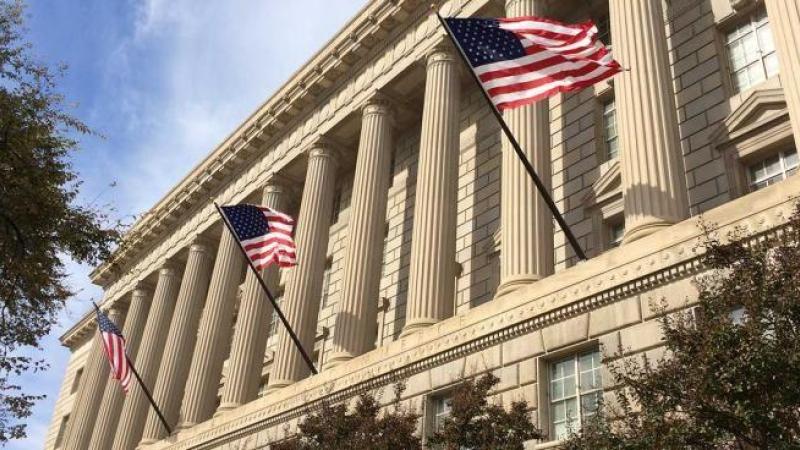Rising deficits from the federal government could keep inflation high, professor warns
In terms of how the Biden administration could properly handle the economy, Luther said there aren't any easy fixes.
Economic concerns are expected to intensify as inflation continues to be high and some predict it may stay that way through the 2024 election.
The annual inflation rate for March was 3.5%, according to the federal government's Consumer Price Index, which increased 0.4% compared to February. According to Florida Atlantic University Economics Professor William Luther, upcoming deficits from the federal government will potentially keep inflation high.
"There are some other big issues in the economy at the moment," he said on the "Just the News, No Noise" TV show. "Big deficits coming from the federal government, which risks keeping inflation high. So a bit of an about face....but an about face that's unfortunately warranted due to the data."
In terms of how the Biden administration could properly handle the economy, Luther said there aren't any easy fixes.
"The policies that they're forecasting are taking us in the wrong direction," he said. "So last year we ran a $1.7 trillion deficit. Those deficits are projected to grow into the future under the Biden administration's plans. And unfortunately, that puts upward pressure on prices."
Inflation is on a lot of voters' minds as the presidential election approaches. A study conducted by Northwestern Mutual found U.S. adults believe that they will need to have $1.46 million saved in order to retire, up 15% from last year's $1.27 million estimate and 53% from the $951,000 figure they cited in 2020 before Biden took office.
"In 2023, the soaring cost of eggs in the grocery store symbolized inflation in America. In 2024, it's nest eggs," Northwestern Mutual Retail Investment President Aditi Javeri Gokhale said. "People's 'magic number' to retire comfortably has exploded to an all-time high, and the gap between their goals and progress has never been wider. Inflation is expanding our expectations for retirement savings, and putting the pressure on to plan and stay disciplined."
Luther also explained that there have also been issues with the way inflation has been predicted. "In the first three months of this year, we're averaging around 4.5%," he said. "So very far off of the Fed's target. Part of that just relates to the way we collect the data. The housing component of our inflation data tends to come with a big lag, which means we're overestimating inflation a bit today, and we were under estimating inflation a bit early in that inflation surge."
Earlier this month, President Joe Biden said that inflation has been reduced to 3% from 9% after indicating rising inflation figures could potentially give the Federal Reserve pause when considering an interest rate cut.
"This may delay it a month or so, I’m not sure of that. We don’t know what the Fed is going to do for certain," Biden said, according to The Hill. "But look, we have dramatically reduced inflation from 9 percent down to close to 3 percent. We’re in a situation where we’re better situated than we were when we took office, where inflation was skyrocketing."
Luther said that deficits are expected to continue to grow under Biden, resulting in upward pressure on prices.
















